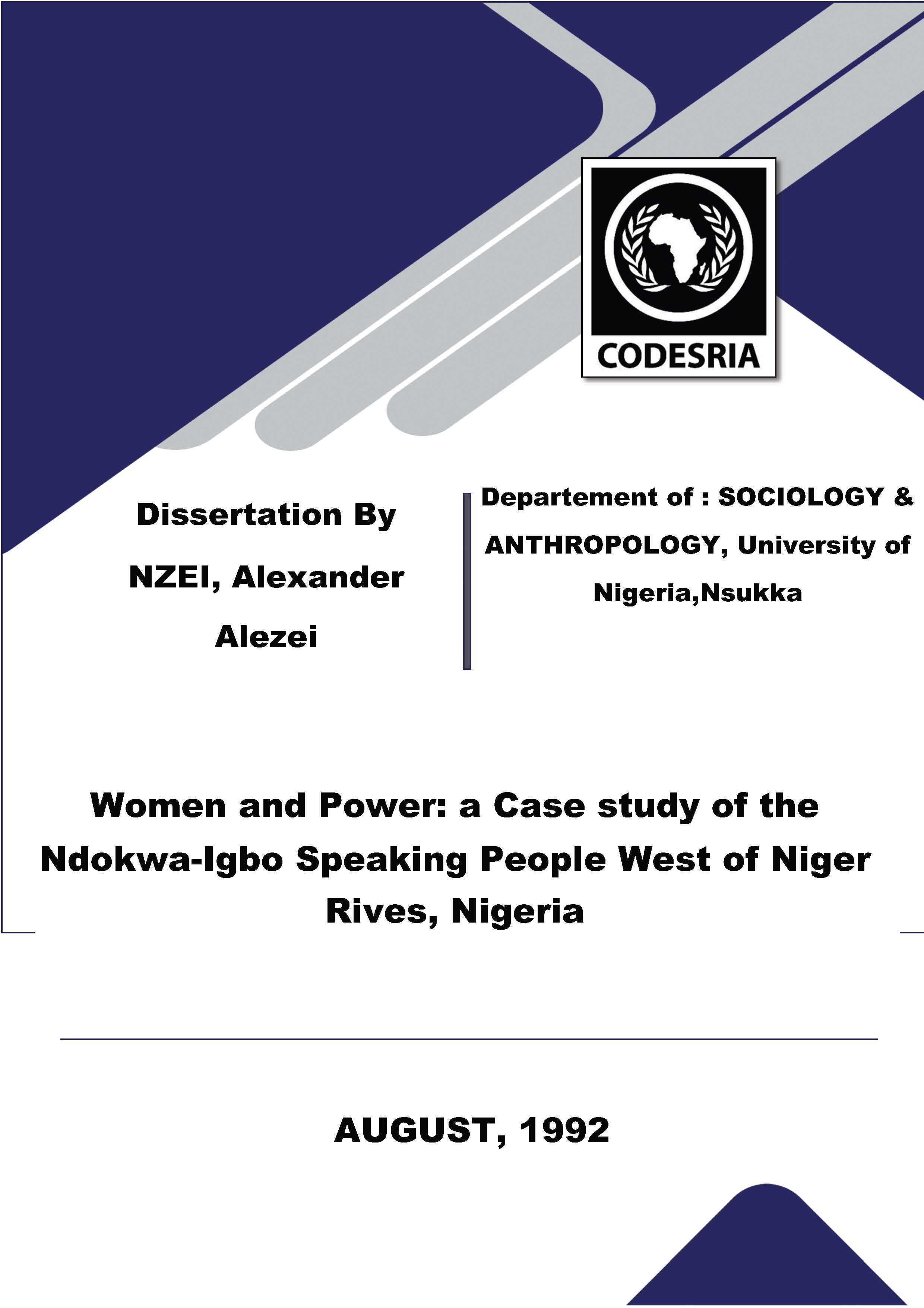Women and Power: a Case study of the Ndokwa-Igbo Speaking People West of Niger Rives, Nigeria
Keywords:
Women, inheritance, politics, political power, women's role, women's status, ownership, means of production, household, gender relations, NigeriaSynopsis
cross-culturally, women are perceived as having low
status and thus as being less powerful than the men. This
assertion, which is predominantly held by Western . liberal
schola.rs, had stimulated fluorescence of global-scale
discussion on gender inequality. In support of the assumed
low status of women, many liberal scholars have advanced
theoretical explanations such as - womanism/biblical theory,
biological, status/role, socialisation, urbanisation,
colonialism, private/public, dual-sex role, culturalism,
etc. • Unfortunately, studies on African women have been
influenced by these theories. Thus, this study of Ndokwa
women aims at presenting empirical data that will challenge
the erroneous and general assertion that traditional Igbo
women have no power. It advances and explores the position
tnat the traditional Igbo women, especially in Ndokwa,
enjoyed very high status and power both as a group and as
individuals.
In order to provide the basis for rigorous theory, the
study adopts the materialistic method of analysis. Mainly,
the Marxist theories of relations of production, social
relations of production and social classes are used in the
analysis. Our data was collected from our ethnographical
field research . through· interview, participant and nonparticipant
observation methods of data collection. With the
support of this data, we argue as follows: (a) that there is
no relationship between patriarchy/matriarchy and gender
inequality expressed in ~omen's status; (b) that · equal
access of both men and women to the means of production
enhances gender equality; (c) that·there is no relationship
between the type of political institution and status/power
of women; and (d) that the institutionalisation of capital
altered the status and power basis of Igbo women. Further,
in the traditional Igbo society, as exemplified by the
Ndokwa, both men _and women had usufruct rights as land was
jointly owned by all.members of the kindred. This translated
into some good measure of equality at the political and
ideological structures of the society as shown in the
manifestations and bases of women's power economically,
politically, legally, religiously and socially.
Downloads
References
Abalkin, L. et al., Political Economy: A Short Course, Moscow: Progress, 1983.
Adesina, D., "Strength of the Weaker Sex". The African Guardian, March 26, 1990, p. 18. 242
Afigbo, A.E., "Women in Nigerian History", In Women in Nigerian Economy. Edited by M.O. Ijere, Enugu: Acena Publishers, 1991, 22-40.
Afonja, S., "Women, Power and Authority in Traditional Yoruba Society and Development. Edited by Leela Dube et. al., Delhi: Oxford University Press, 1983.
Aidoo, A.A., "Asante Queen Mothers in Government and Politics in Nineteenth Century." In The Black Women CrossCulturally.
Edited by Filomena Steady, Cambridge, Massachusetts, Schenckman, 1981, 65-77.
Ake, C., Social Sciences as Imperialism: The Theory of Political Development. Ibadan: Ibadan University Press, 1982.






